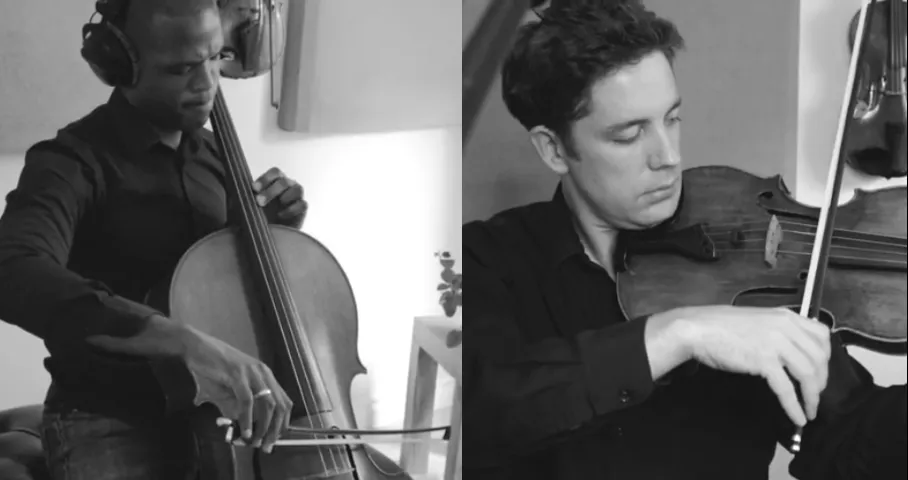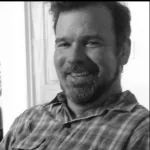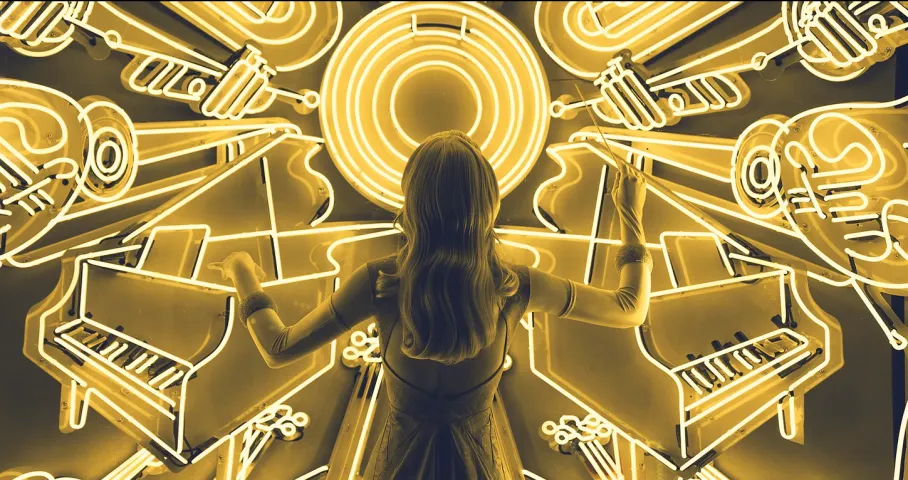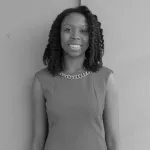AGAPE: A conversation with alumni Zach Dellinger and Caleb Vaughn-Jones

The story I’d heard about 2003 Music alumni Caleb Vaughn-Jones and Zach Dellinger went like this: The two had been roommates for their second year at the Governor’s School. Then they’d each gone on to prestigious music programs: Caleb trained at the Peabody Institute, Zach at the Eastman School of Music. Over the years, jobs, family, and performance opportunities cast them even further apart, with Caleb landing in South Africa and Zach putting down roots in Los Angeles. But now, due to the Covid-19 pandemic, they are back together again, sharing Zach’s home in L.A. and collaborating on new projects such as their arrangement of Nicholas Britell’s “Agape: If Beale Street Could Talk.”
As a story, it had a pleasing kind of shape to it: the long-lost friends reunited. When I asked them if my version of the story was accurate, Caleb laughed a little, and shrugged his head to one side. “Well, it’s a little more detailed than that.” Caleb had in fact arrived in L.A. three days before the city went into lockdown with the intention of looking for a place to relocate with his wife and daughter, who are still back home in South Africa. With the city shut down and travel impossible, Zach and his wife took Caleb in. A little more detailed, indeed…
What I would learn over the course of our conversation was that these two musicians do not shy away from details or complications. Rather, that’s how they seem to work best. For example, I asked them, now that they were roommates once again, were there any old habits from back in their Govie days that still lingered. I expected them to say something like, “He still doesn’t pick up his dishes,” or “He still leaves a mess in the sink.” Typical roommate fare. But I was wrong.
Zach explains it this way. “I don’t think Caleb has changed at all since Governor’s School, which is kind of remarkable. He even kind of looks the same to me. But one of the things that drew me to him was that he was always very consistent.”
Back then, Zach admired Caleb’s drive, the way he “decided he was going to do stuff, and then he did it.” He talks about how the two of them woke early in the morning to get to the practice rooms by 5:30. “I don’t know if I would have done that if I wasn’t roommates with him,” Zach admits. “And Caleb is still like that. He works harder than anyone I’ve ever met.”
Likewise, Caleb speaks of Zach’s passion. “Anybody who knew Zach from the Governor’s School, they probably remember him as being kind of unpredictable.” At that word, Zach laughs and shoots a smile at his friend. “He most definitely used to wear his emotions on his sleeve,” Caleb says. “Still does. But now I think he’s figured out how to use that to his benefit, which is the important thing, realizing, This is my personality, and I need to make this thing work for me so I can actually work.”
Caleb’s emphasis on that last word, the work, brought us around to the shapes their careers have taken thus far. They’ve each been involved in symphonies and chamber groups; they’ve each worked on film scores and as session musicians. In fact, the last time Caleb had seen Zach before the pandemic hit was in April 2109, when they both played on The Lion King soundtrack, and as session musicians on a Boyz 2 Men album.
While recognizing the moments that come with a successful career, Zach claims “the best experiences I’ve had musically have been sharing music with people who don’t normally hear it.” To that end, he has played concerts in L.A. County jails, for under-served communities along Skid Row, and for veterans suffering from PTSD.
Caleb, too, speaks of his desire to connect with what he called an “atypical” classical music fan. “Not that there's anything wrong with the traditional classical music audience” he says, “but I always saw myself reaching a broader, more diverse audience than that.”
For Caleb, recording music for video games has been a gateway to that new, less traditional audience. “You don’t really think when you’re playing your cello that you’re going to have all these fourteen and fifteen-year-old kids who can literally hum the theme you recorded, but that’s what ends up happening.”
This sort of openness to new audiences has challenged both of them to rethink the stigmas attached to classical music.
“I think the term ‘classical music’ is not good,” Zach says. “It brings to mind a very stodgy sort of experience with music.”
Caleb agrees. “I think we should be more descriptive of what people are actually hearing.” He suggests the term “Orchestral Music” if there is an orchestra, or “Chamber Music” for music performed in a smaller group setting. “It’s not genre specific, right?”
As an example, he mentioned a concert at the Kennedy Center where an orchestra collaborated with hip-hop artists Nas and Jay-Z.
“That’s orchestral music,” he says, “and then you have orchestral music that’s Dvořák's symphonies.”
For their latest project, Zach and Caleb collaborated on a piano and strings cover of Nicholas Britell’s “Agape” from the soundtrack of If Beal Street Could Talk. In light of the dual realities of the pandemic and the ongoing tensions surrounding Black Lives Matter protests, Caleb says they looked for “music that would resonate with what’s going on in the current climate.”
“I started thinking of soundtracks that spoke to a lot of injustices. And one of the main themes [in the movie] is this scene ‘Agape.’”
As Caleb and Zach explained, “Agape” takes its title from the Greek word agape, which was primarily found in Christian texts and refers to the highest form of unconditional, selfless love.
“The reason that it’s often referred to as a Christian term,” Caleb says, “is that we are trying to follow the example set by God himself, the type of love that he has for us. We’re not necessarily worthy of it, but we get it.”
Zach explains that in the face of George Floyd’s death, and “the darkest energy in a hundred years all culminating,” they asked themselves the question, What little thing can we do to try to put some love out there? That was the motivation.”
As our conversation began to close, I asked them what they might say to our Governor's School students who are living through a Govie experience unlike any before?
“Really pay attention,” Caleb said, “to what makes the hairs on your arms stand up. If you become extremely sensitive as an artist, then it becomes easier to make great art that moves you. It may not touch anybody else, but it doesn’t matter.”
Rather than focusing on the technicalities of a piece, he explained, try to remain true to that original spark that moves you.
“It’s great having the training, but that can’t be the main thing. If you’re relying on the Governor’s School or that community to make you mature or a great artist, then your perspective is slightly off. That is a community that can nurture and encourage you to become your own artist, but you can become great outside of that environment. If you are in touch with that, then you’ll always be able to make really great music.”
At the same time, both Zach and Caleb agree that the Governor’s School itself is a place like no other. “The educators there,” Zach says, “they really, genuinely want to see their students blossom. I imagine, even virtually, there will be that same sort of support.”
Zach explains that as students move on to places of higher learning in their respective fields, it’s not always like that. “It’s a different dynamic. It’s not the same sort of love environment. So embrace this time. Embrace this support, even if it’s virtual. You aren’t in a physical community, but you were selected to come to this place because people really believe in you.”
As we said our goodbyes, it was raining in Greenville. Zach and Caleb said it was raining in L.A., too, which was rare. We were connected in that, and by the links of our laptops, their two faces on my screen. The two of them shared one microphone, doing what they can to put a little more love out there.



